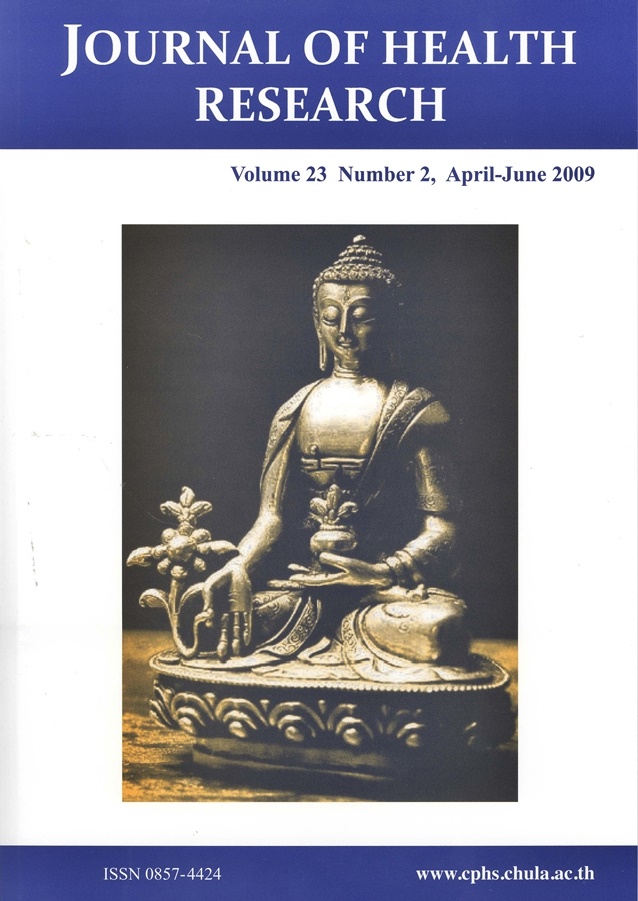Tobacco Smoking Behavior in Youth Offenders
Keywords:
Youth Offenders, Tobacco, Smoking Behavior, Juvenile Court, Survey, Face-to-Face InterviewAbstract
The purpose of this study was to explore the tobacco smoking behavior in Thai youth offenders. A face-to-face interview survey was conducted among 182 youth offenders who smoked cigarettes regularly at Juvenile and Family Division, Pathumtani Provincial Court from January to September 2008. Results indicated that the majority were male (96.7%) with the mean±SD age was 16.72±1.17. They were more likely to have poor educational performance, low educational levels and early school dropouts. About 76.3% lived with their parents or either father or mother. Sixty three percent had a history of alcohol consumption. They smoked an average of 7.69±4.62 cigarettes/day, started their first cigarette at 14.31±1.67 years of age and had been smoking daily for 2.53±1.59 years. Most youth offenders bought split cigarette packet (74.1%) and spent for the cigarettes approximately 20.12±11.59 baht/day. Fifty eight percent had smokers living in their homes [i.e., father (33.0%), mother (3.3%), brothers (20.9%), or other relatives (19.2%)]. Most youth offenders (97.8%) had friends who smoked and the mean number of smokers in their friend’s group was 7.10±4.32. They had a mean Fagerström Test for Nicotine Dependence (FTND) scores of 2.63±1.75, indicating low nicotine dependence. This result was consistent with the scores from “Why are you still smoking?” questionnaires which showed that psychological and socio-cultural effect was the most influential effect of their tobacco dependence. The majority (80.8%) had a history of previous quit attempts and the primary quitting method was willpower (59.9%). The primary reason for quitting smoking was the desire to quit (57.2%) and the most reason for relapse was cigarette craving (67.1%). In conclusions, most youth offenders usually smoke cigarettes. While smoking is a primary influence on future illicit drug use, a screening method and/or smoking cessation program with tobacco free youth offender policy are needed during the pre-trial to impose restrictions on their conduct without detention to help them quit smoking.







